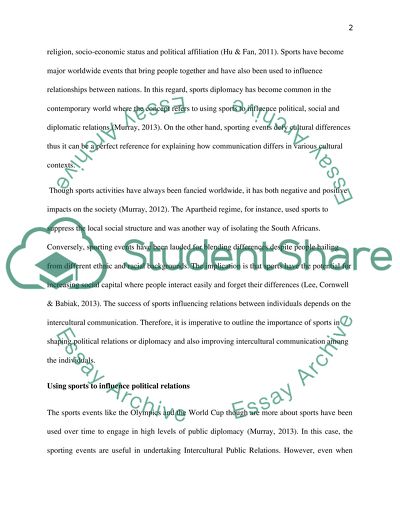Cite this document
(“The Intercultural Communication in the Sports and Politics Essay”, n.d.)
Retrieved de https://studentshare.org/politics/1690110-the-role-of-intercultural-communication-in-the-relationship-between-sports-and-politics
Retrieved de https://studentshare.org/politics/1690110-the-role-of-intercultural-communication-in-the-relationship-between-sports-and-politics
(The Intercultural Communication in the Sports and Politics Essay)
https://studentshare.org/politics/1690110-the-role-of-intercultural-communication-in-the-relationship-between-sports-and-politics.
https://studentshare.org/politics/1690110-the-role-of-intercultural-communication-in-the-relationship-between-sports-and-politics.
“The Intercultural Communication in the Sports and Politics Essay”, n.d. https://studentshare.org/politics/1690110-the-role-of-intercultural-communication-in-the-relationship-between-sports-and-politics.


